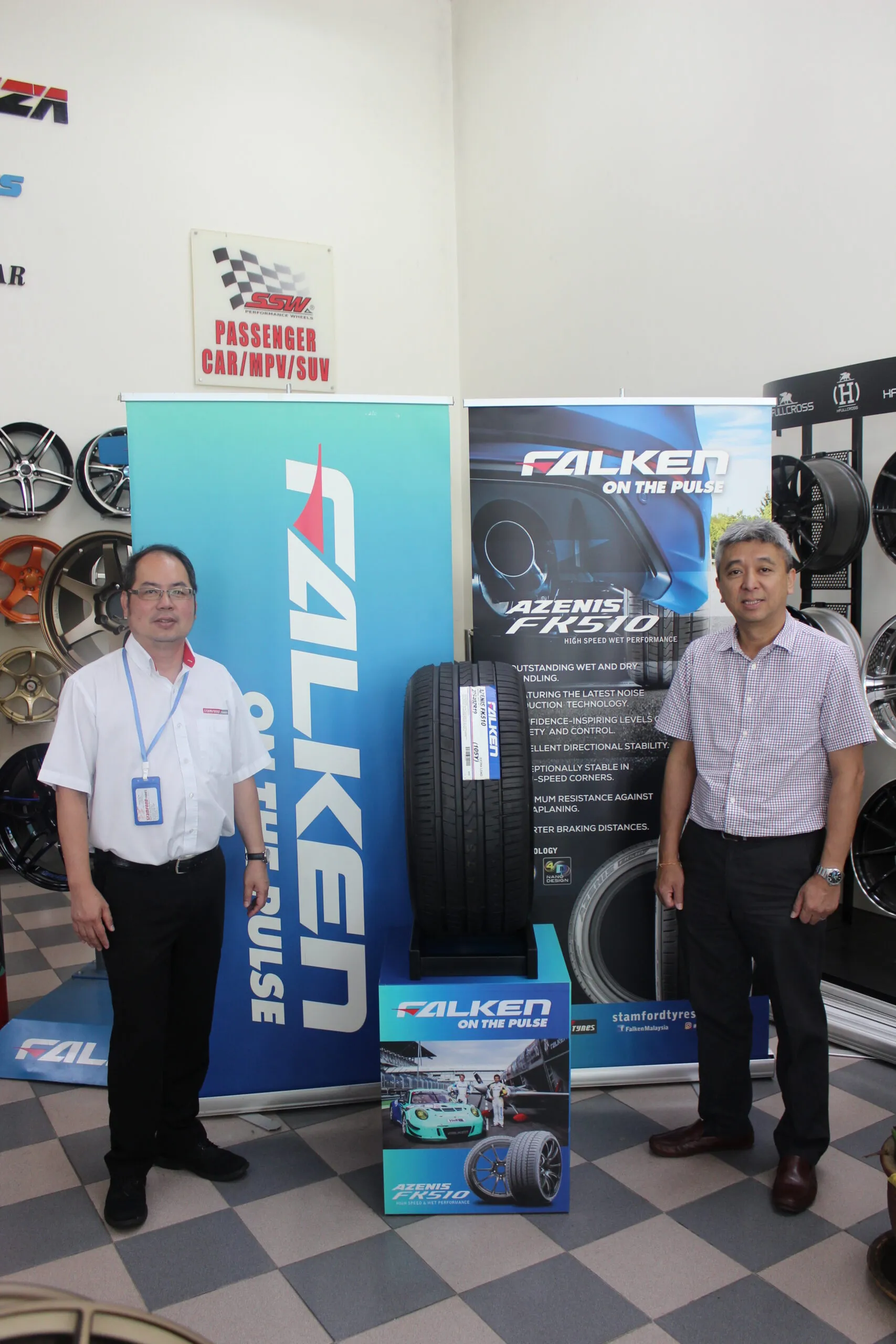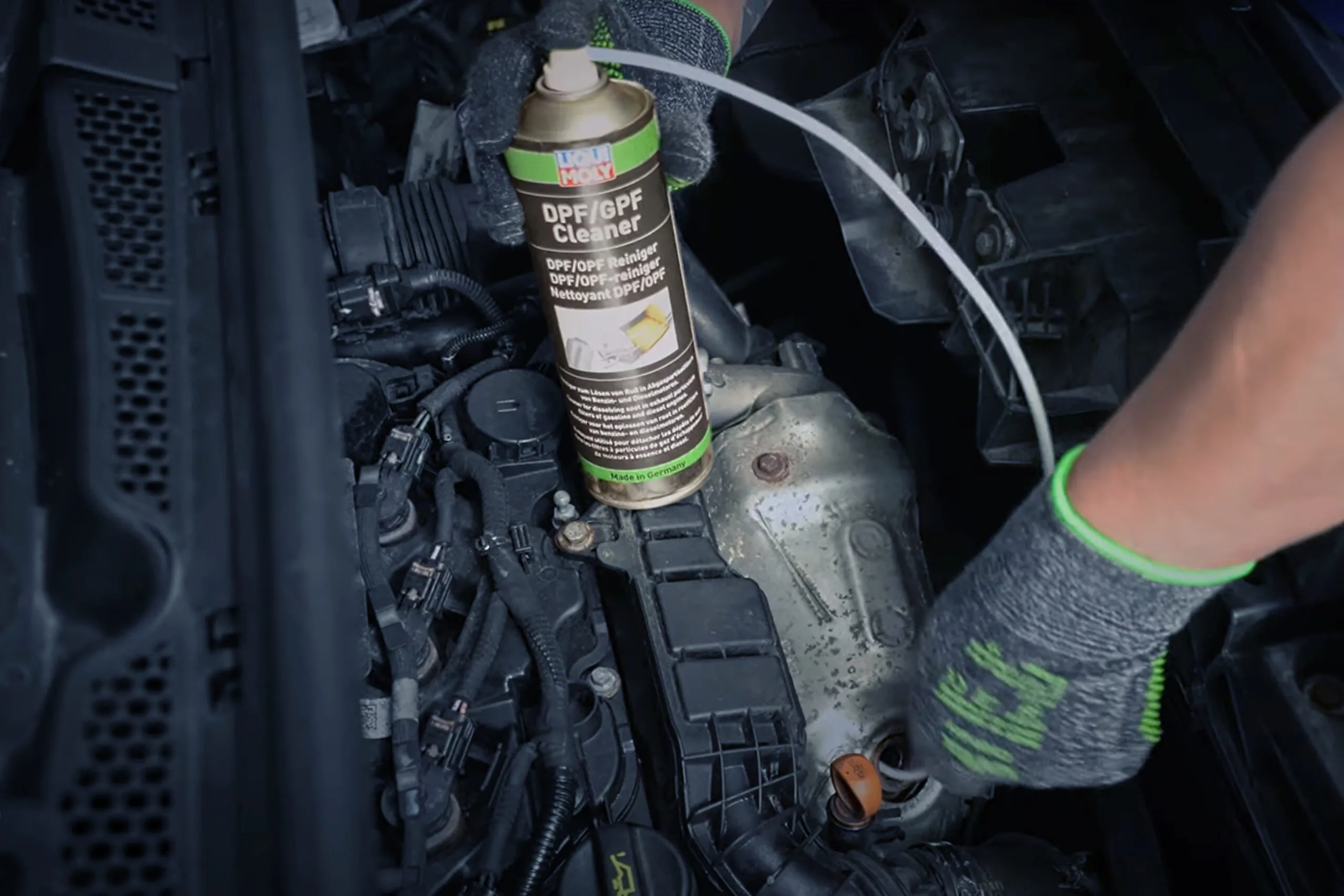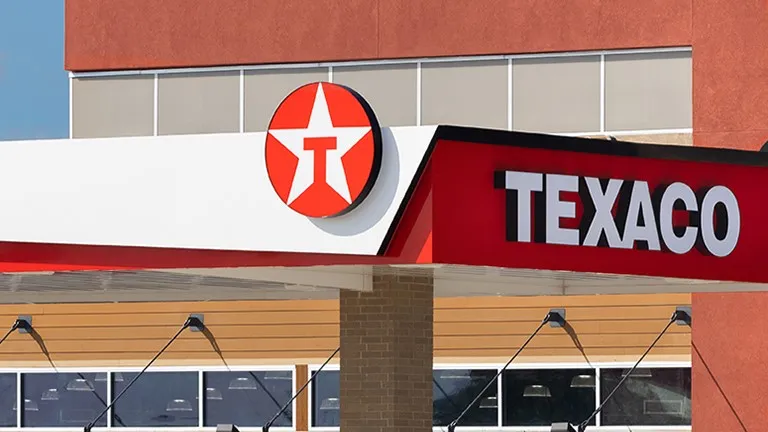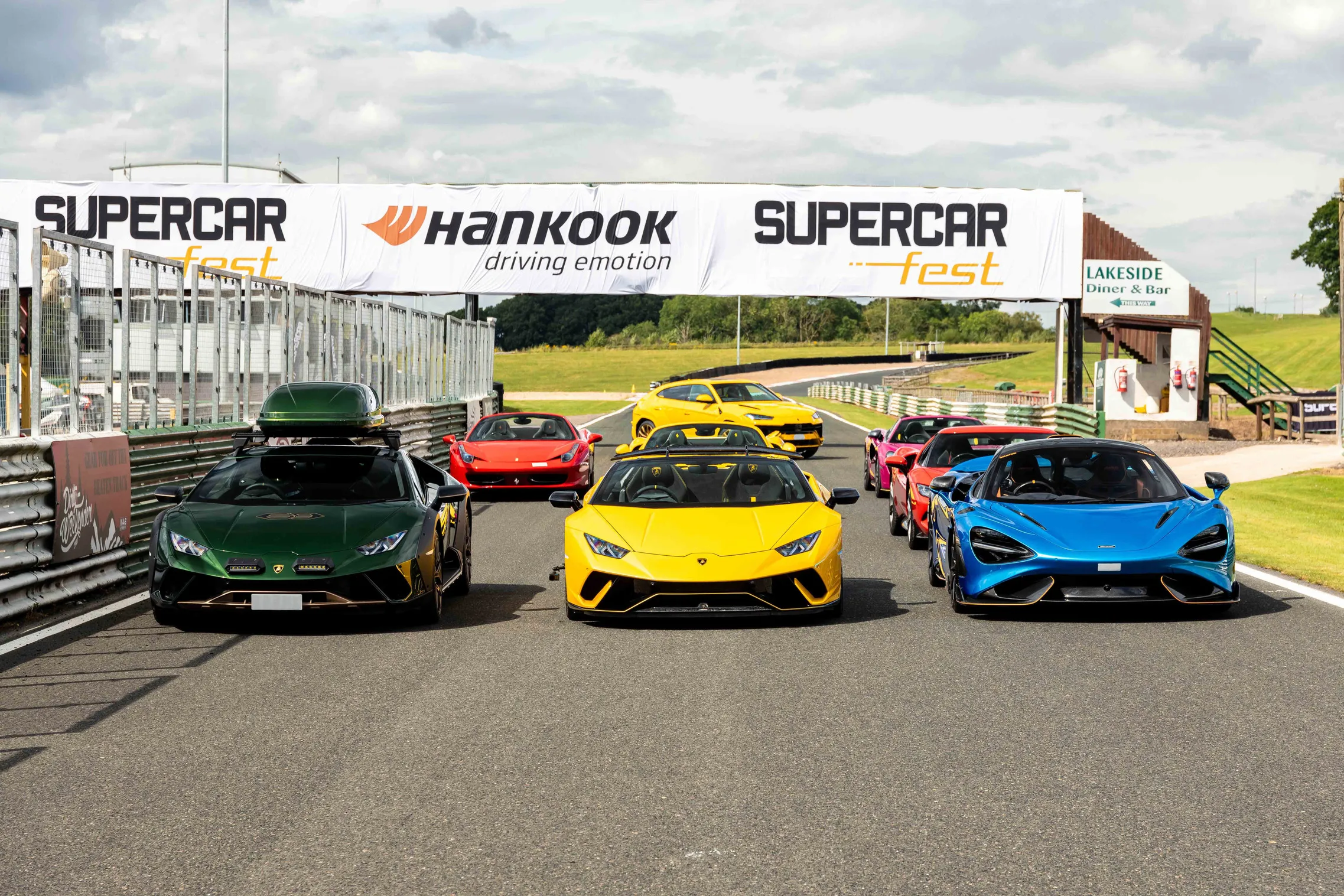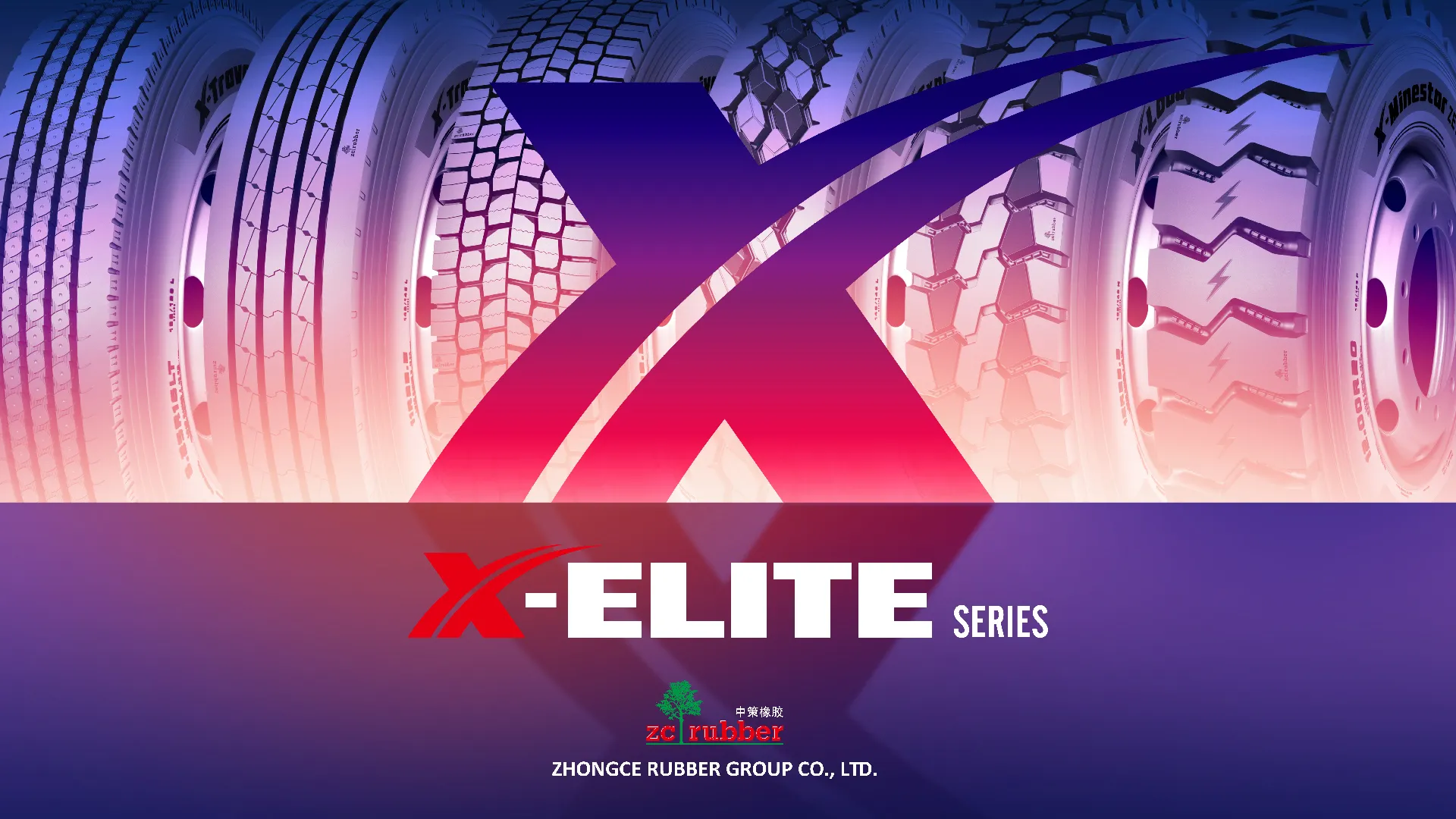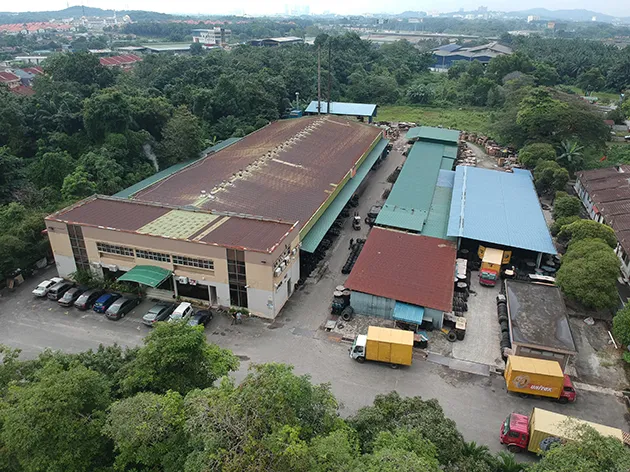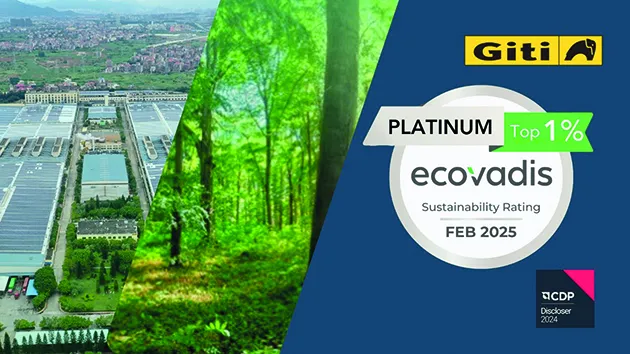Conson carries with him his experiences not only in Africa, but also Indonesia and India.
Conson Tiu Becomes Stamford Tyres Malaysia New Deputy CEO
Stamford Tyres Malaysia named Conson Tiu Sia as the new Deputy Chief Executive Officer in February this year. Conson began his career with Stamford Tyres in 1993, heading the Group’s operation in the Philippines. He holds a Bachelor of Science in Commerce from the University of Santo Tomas, Philippines and is a Certified Public Accountant. He was the Group Chief Financial Officer from 2001 to 2013. Prior to his posting in Malaysia, he was the Senior Vice President, Head of South Africa Operations of the Group, for 6 years.
There was no ‘honeymoon period’ for Conson as he came in during a challenging time. Executive Vice President & Chief Executive Officer Cham Soon Kian would oversee the overall business operations in Malaysia while Conson runs the day-to-day operations to ensure a smooth transition for two years. Conson has been visiting dealers across Malaysia to understand their needs, requirements and challenges, which he said was an effective way of learning the ropes and market.
“Malaysia is a very small market with more than 130 tyre brands and there are always new brands and products coming to compete for market share. It is a free, open and crowded market. My immediate focus would be to continue brand building and enhance our brand value as well as further strengthen our dealers’ relationship and instil confidence,” he said.
Falken still remains Stamford Tyres’ major brand
Cham added that Falken was still the company’s major brand, which contributed about 70 per cent of its total sales. “Chinese products still have a long way to go. Defining a Chinese brand and developing a brand strategy could be complex. It takes time, money and effort to build a brand. It also requires communication with the dealers and consumers.”
Conson carries with him his experiences not only in Africa, but also Indonesia and India. “Our plan is to continue working closely with our existing dealers. The numbers game is no longer effective today, though it is tempting to think that more dealers could lead to higher sales. The greater focus should be on fostering a long-term relationship with our dealers, and sharing our vision and long-term plans with them. Protecting and helping them to increase their sales and profit margin.”
One of the potential areas that Conson sees is the commercial segment, where he would like to develop further. Apart from truck and bus radial (TBR) tyres, the company would also look into the waste collection and mining industry as well as heavy equipment such as earthmovers.
“These are the segments that are dominated by the Chinese tyres, but we see the potential and demand for good quality tyres. We just brought in the Falken RI 151 295/80R22.5, which is a regional steer/trailer position commercial tyre that is designed to maximise uptime on the road. It incorporates stone drilling prevention features to protect the tyre from casing damage. Better weight distribution is achieved through an all-new tread profile that widens the stance of the tyres, which increases tread life and promotes even wear. In addition, it has a wavy outside shoulder groove that helps to prevent cracking that is typically experienced at the base of the tread, ” Conson added.
Conson also revealed that the company was currently testing the new Falken BI 852 drive axle tyre, which would be released soon after the trials.
The market, according to Cham, was not promising at the moment due to the economic downturn. “Currently, the majority of consumers are not looking so much on performance but affordability. Even the big brands are promoting their second tier brands to capture market share, which I think in the long run would affect their own major brand. Acquisition and consolidation of brands would continue to take place.”
Defending is increasing market share
Stamford Tyres announced that its 3Q19 earnings declined by 97.8 per cent to S$20,000, compared to S$953,000 in 3Q18. The operating environment in the tyre business, Cham continued, remained challenging as a result of global oversupply and intense competition. The anti-dumping duty on Chinese tyre imports by the EU and US resulted in Asia, including Malaysia, becoming the dumping ground for these tyres. As such, he said, the Group would continue optimising its product mix, managing operating costs, trimming down inventory and building on its core markets in Southeast Asia.
“Malaysia is an important market for us and we are now looking at defending our market share. In the current operating environment, I would say defending is already considered increasing our market share,” Cham stressed.
Cham explained that the company’s pricing was not that competitive compared to the manufacturers as it was the distributor and its products were imported from Indonesia, Thailand and Japan. “Manufacturers have already increased their prices but the domestic market did not make any price adjustment due to the slowdown. We have never experienced such a slowdown before. There is a sharp increase in the sales of second-hand tyres and the overwhelming demand has created a shortage.”
Another challenge, Conson pointed out, was the big hoo-ha earlier on the tyre manufacture date that led to a great impact for the company. “As a tyre distributor, we have to hold inventory to ensure sufficient product supply. From the tyre sidewall, one could tell the date the tyre was manufactured. Based on that information, many consumers believed the tyre to be ‘fresh’. To determine tyre life based on the date of production is unscientific. In fact, tyre experts would tell you that tyres are considered to be ‘new’ and fit for retail up to 5 years from the date of production.”
The consequences, he continued, were that dealers asked for discounts for tyres that were produced 6 months ago due to the pursuit of the most ‘fresh’ tyres from consumers. This changed the normal operation of the tyre industry from the original first-in first-out inventory system to last-in, first-out. It also affected the company’s supply chain and it had to tighten its inventory control and hold as little inventory as possible, which resulted in a tyre shortage in the market.
“What did not come to the consumer’s mind is that many tyres are imported from other countries and it takes 2 to 6 months to be shipped from the factory,” Conson stressed.
Despite all the challenges, Conson said the company would continue its on-going campaign to promote the Falken brand and further increase its awareness. “We need to support them, especially in tough times; thus we would look into ways on how to support them effectively as the dealers wanted to spend more time in their shops looking after their business rather than getting involved in roadshows.”
大马添福胶胎新任副首席执行员
继续致力品牌建设
马来西亚添福胶胎于今年2月委任Conson Tiu Sia为新任副首席执行员。1993年,Conson加入添福轮胎并负责该集团在菲律宾的营运,拥有菲律宾圣托马斯大学商业科学学士学位的他是一名注册会计师。他在2001 至2013年间,担任添福胶胎集团的集团首席财务员,之后被调派到南非,负责管理该集团的南非业务营运长达6年之久 。
在充满挑战的时刻到马来西亚任职的Conson,完全没有“蜜月期”。执行副总裁兼首席执行员詹训建将监督马来西亚的整体业务营运为期两年,而Conson则负责日常运营,以确保顺利交接。为了迅速掌握大马轮胎行业和市场状况,Conson近期都将时间花在走访本地的代理商,了解他们的需求和挑战。
“马来西亚虽是个很小的市场,却拥有130 多种轮胎品牌,而且经常有新品牌和产品前来抢滩。它是一个自由、开放且拥挤的市场。我的当务之急是继续推进品牌建设,加强我们的品牌价值,以及进一步巩固我们的代理关系和信心。”他说。
飞劲仍是添福胶胎的主要品牌
詹训建补充,飞劲仍然是添福的主要品牌,占了公司总销售量的70%。“中国产品还有一段漫长的路要走。确定一个品牌和发展出一个品牌策略是很复杂的事。要建立一个品牌,除了需要时间和努力,还需要与代理和消费者沟通。”
Conson拥有丰富的非洲,印尼及印度业务运营经验。“我的计划是与现有代理密切合作。今天数字游戏不再有效,虽然越多代理商将带来更高销售量的想法仍然充满诱惑力 。我认为应该将更大的注意力放在如何巩固我们与代理的长期合作关系上,与他们分享我们的愿景和长期计划,保护和协助他们提高销售量和盈利。”
商用领域是Conson看到的其中一个充满潜能的地方,他希望能够在这方面有进一步的发展。除了卡客车子午胎,该公司也有意朝废物收运和矿业,以及重型设备如推土机方面拓展。
“这些正好是中国轮胎所支配的领域,但我们在这些市场中看到了对优质轮胎的需求和潜能。 我们刚刚引进了飞劲RI 151 295/80R22.5,一条区域性转向/拖车轮位商用胎。它具有防轮胎被石子扎破的功能,避免胎体受到损伤。透过扩大轮胎接触面的全新胎面轮廓,提供更好的重量分布,提高胎纹寿命和促进均匀磨损。此外,它波浪状的外胎肩沟槽,可协助防止胎面底部断裂。”Conson 补充。
他接着透露,公司目前正在测试全新的飞劲BI 852 驱动轴轮胎,他相信该轮胎在测试后很快就能面市。
据詹训建表示, 在经济放缓下,市场很不乐观。“相对于性能,现在大部分消费者都在寻求经济实惠的轮胎。即便是主要品牌也在推广他们的第二线品牌,以猎取市占额,我认为这样的做法,长期下来会对他们的主要品牌造成影响。品牌的收购和合并将会继续发生。”
捍卫就是增加市占额
添福胶胎宣布,其2019年第3季的收益下跌97.8%至20,000新币,相较于去年同期的953,000新币。詹训建接着说,在全球供过于求和剧烈竞争下,轮胎业务的营运环境仍然充满挑战。欧美对从中国进口的轮胎征收反倾销税,导致亚洲,包括马来西亚成为这些轮胎的倾销市场。为此,他说,该集团将继续优化其产品组合、管理营运成本、减少库存,在东南亚建立其核心市场。
“马来西亚对我们来说是一个重要的市场,我们正在寻求捍卫市占额的方法。在现有的运营环境中,我会说捍卫就是在增加我们的市占额。”詹训建强调。
詹训建解释,该公司的轮胎售价无法像制造商那样充满竞争力,因为他们是经销商,他们的产品来自印尼、泰国及日本。“制造商已经调涨他们的价格,但本地的市场因为市场放缓而没有进行任何价格调整。二手胎销售量急剧增加,压倒性的需求造成短缺。”
Conson指出,另一个对该公司带来巨大挑战和影响的是早前引起轩然大波的轮胎制造日期。“作为一家轮胎经销商,我们必须持有库存,以确保足够的产品供应。我们可以从一条轮胎的胎侧知道该条轮胎的生产日期。基于这个信息,许多消费者因此认为轮胎要‘新鲜’的才好。 然而,单单以制造日期来鉴定轮胎的使用寿命是毫无科学根据的。事实上,轮胎专家会告诉你,从制造日期起到5年内的轮胎都算是‘新’轮胎。”
他继续,由于消费者对“新鲜”轮胎的要求,代理商在购买6个月前制造的轮胎时会向供应商要求折扣。这把轮胎行业原有的“先进先出”库存系统,变成了“后进先出”。它也影响了公司的供应链,因为公司必须加强库存控制,将库存量降至最低,导致轮胎短缺。
“消费者没考虑到的是许多轮胎都是从其他国家进口而来的,从当地的工厂运至马来西亚需要2-6个月的时间。”
Conson说,尽管面对各种挑战,该公司将会继续展开推广飞劲品牌的活动,进一步提高品牌知名度。“我们需要在困难的时刻支持我们的代理商,因此我们会继续努力寻找最能有效支援他们的方法,因为比起参与‘路秀’(roadshow),代理商目前想花更多时间在他们的店里专心打理自己的业务。”

